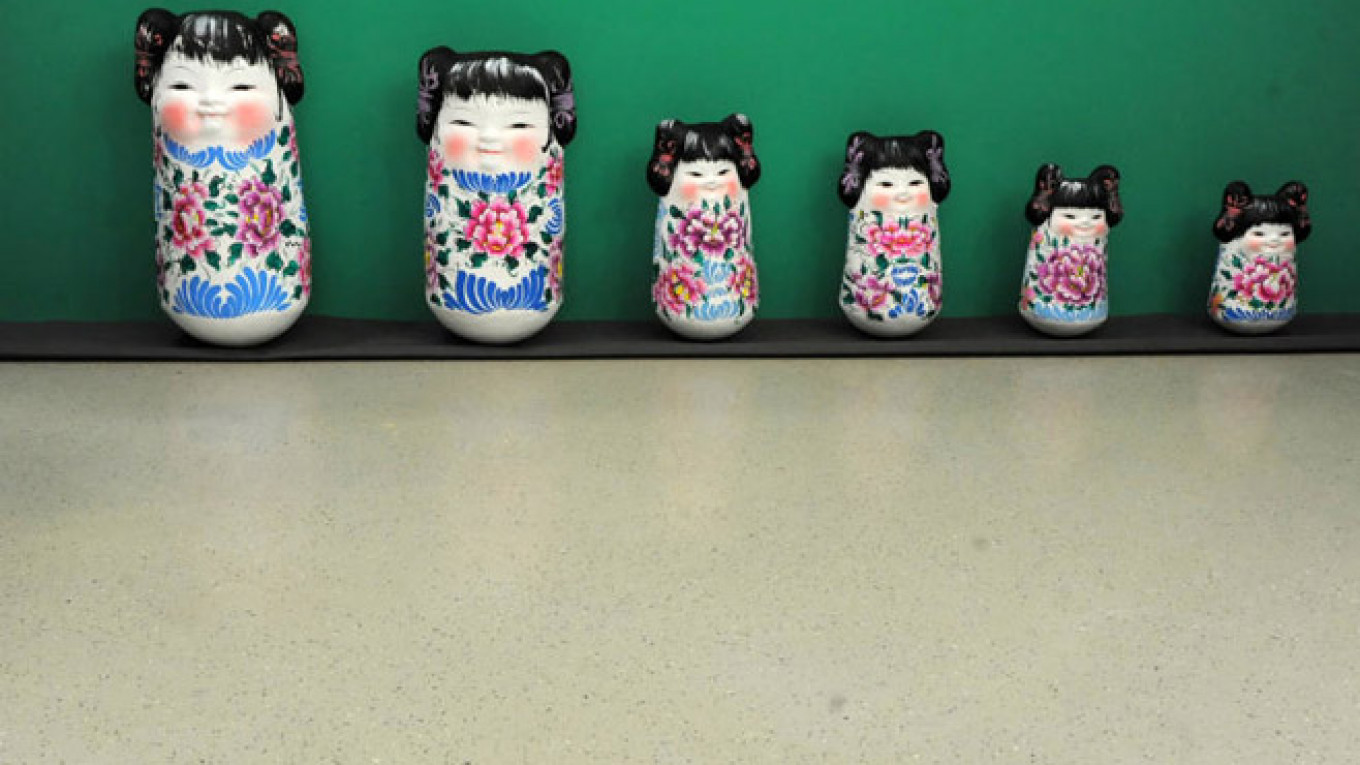In early November, I conducted two surveys regarding the attitudes of Chinese and Russians toward closer economic and financial relations between their two countries. The surveys were conducted in Shanghai and Moscow, and showed an overwhelming desire — more than 90 percent of respondents in both cases — for closer relations between China and Russia.
The Moscow survey covered a LinkedIn-based sample of people who reported that they spend 50 percent or more of their work time thinking about financial issues. The Shanghai sample covered students at the University of International Business and Economics, where the studies are concentrated on international issues.
The Moscow and Shanghai responses to other questions in the surveys showed more divergence, and revealed the effect of the events in Ukraine and of Western sanctions on Moscow attitudes.
Only 10 percent of the Moscow respondents nominated the U.S. as the country with which Russia should have the closest economic and financial relations. More than 90 percent of Shanghai respondents nominated the U.S. as the country with which China should have the closest relations.
This stark difference in attitudes toward the U.S. was not repeated in the case of the European Union. After the U.S., the Shanghai respondents nominated the EU and Russia (almost in equal numbers) for closest relations, followed by Japan, and with India and Australia a very distant last. The Moscow respondents ranked the EU and China almost equally.
So it seems that the EU has managed to be the common second favored area for relations, while China and Russia have quite favorable attitudes toward each other.
Unless events in disputed parts of the South China Sea cause a rupture in U.S.-China relations, those relations will be much better than U.S.-Russia relations for quite a few years. Russia will not return Crimea to Ukraine, and eastern Ukraine is unlikely to see real peace anytime soon. This would seem to give China more options than Russia in dealing with the U.S. and its allies — including the EU and Japan.
I asked the Shanghai respondents the following question: "When thinking about economic and financial relations, do you think that 'Russia needs China' more than 'China needs Russia'"? The responses were equally divided between "yes" and "don't know." Hardly anyone thought that China needs Russia the most.
I lived and traveled in Russia for several years and always thought that Russians were paying insufficient attention to the Chinese economy and the possible trade benefits. That now seems to be changing.
As well as turning to the East, Russians are turning inward because of the U.S.-led sanctions. This may account for surprising responses in the Moscow survey on the issue of Moscow becoming an international financial center by 2020. This has never been likely for a variety of reasons, including corruption and the dominant role of state-owned banks.
Two supposed advantages of Moscow as an international financial center were as a center for financing for the post-Soviet Commonwealth of Independent States and the idea that Moscow could act as a bridge between China and the West. The idea of Moscow as an "international financial center by 2020" was supported by nearly half of the Moscow respondents in the survey.
I interpreted this as an emotional reaction to sanctions and as a desire for more autonomy from U.S.-dominated world markets. Yet, there may be an element of rationality in the "East meets West" view if Russia can play on the desire of China for the renminbi to become a more international currency.
Whatever the future holds in Ukraine and for relations between Russia and the West, it is clear that China is the main winner in the current situation.
Jeff Schubert is a research consultant for the Shanghai University of Finance and Economics.
A Message from The Moscow Times:
Dear readers,
We are facing unprecedented challenges. Russia's Prosecutor General's Office has designated The Moscow Times as an "undesirable" organization, criminalizing our work and putting our staff at risk of prosecution. This follows our earlier unjust labeling as a "foreign agent."
These actions are direct attempts to silence independent journalism in Russia. The authorities claim our work "discredits the decisions of the Russian leadership." We see things differently: we strive to provide accurate, unbiased reporting on Russia.
We, the journalists of The Moscow Times, refuse to be silenced. But to continue our work, we need your help.
Your support, no matter how small, makes a world of difference. If you can, please support us monthly starting from just $2. It's quick to set up, and every contribution makes a significant impact.
By supporting The Moscow Times, you're defending open, independent journalism in the face of repression. Thank you for standing with us.
Remind me later.






